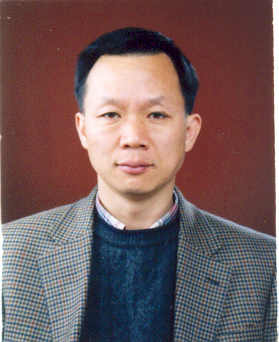‘Single version of history is against nature of education’
By Yoon Min-sikPublished : Oct. 19, 2015 - 21:06
The Education Ministry recently announced that it will take back publishing rights of history textbooks for secondary education in a bid to restore “balanced history education.”
But Yang Jung-hyun, a history professor with experience authoring a state-published textbook, said granting the government exclusive rights to write textbooks is among the worst idea imaginable. Last week, he and 23 colleagues at Pusan National University joined a nationwide move by professors to refuse to participate in the creation of state history textbooks.
“The concept of ‘one history’ is basically against the essence of history education, which is to allow, encourage various interpretations (of history) by students,” said Yang, who doubles as the chief of the Korean Association of History Education.
But Yang Jung-hyun, a history professor with experience authoring a state-published textbook, said granting the government exclusive rights to write textbooks is among the worst idea imaginable. Last week, he and 23 colleagues at Pusan National University joined a nationwide move by professors to refuse to participate in the creation of state history textbooks.
“The concept of ‘one history’ is basically against the essence of history education, which is to allow, encourage various interpretations (of history) by students,” said Yang, who doubles as the chief of the Korean Association of History Education.

He voiced concerns that state-authored books will attempt to favorably depict controversial figures like former President Park Chung-hee.
“It was only under Japanese Imperialism and (Park’s) Yushin dictatorship that state textbooks were used, with the sole intent of justifying the unlawful monopoly of power by imposing a monolithic historical view on students. Reviving the state history textbooks will send the wheels back to the times of the dictatorship,” he said.
Yang added that the Korean Constitution states that education should be impartial and politically neutral, which is impossible if a certain party monopolizes the publishing rights.
Speaking from past experience authoring a state-commissioned middle school history textbook published in 2002, Yang pointed out that writers of state textbooks are structurally subject to government influence even if the administration is not a dictatorship.
In nearly two years of tussle over state history textbooks, both the conservative administration and ruling Saenuri Party were in tandem in emphasizing that current history textbooks are biased in favor of the leftists, and even favorably depict North Korea. Party leader Rep. Kim Moo-sung claimed that historians are 90 percent leftists while the Education Ministry said the current textbooks looked like they were published in Pyongyang.
For example, the ministry and the party pointed out that all textbooks depicted in-depth the North’s juche ideology ― the backbone of Pyongyang’s dictatorial regime ― accusing them of blindly repeating North Korea’s descriptions about itself. Saenuri last week hung a placard saying, “Our children are learning juche ideology!” across the country, which they took down a day later after it was revealed that the textbooks also criticize the juche idea.
Yang, who dismissed Kim’s claim as “not even worth mentioning,” said such claims are taken out of context.
He said as the two Koreas are still technically at war, it makes sense for South Korean students to learn about their hostile neighbor. “Know your enemy, they say. Students of course must know about the situation and ideas of North Korea.”
“How could a textbook that glorifies North Korean ideology pass the state inspection? If the textbooks are indeed (biased), the president and the education minister should resign,” he said.
The ministry has also accused current textbooks of having numerous errors. Proponents of the state history textbooks say the quality issue can be resolved when the government takes over.
But Yang said state-published textbooks would not necessarily guarantee better quality.
“From my experience, the state history textbooks do not have to worry about quality because there will be no competition. But privately published books have to compete with each other, giving them an incentive to consider what the students are interested in and what the teachers need,” he said. “This is actually what the ministry touted as the biggest advantage of the private publishing system when it was introduced back then.”
Yang raised suspicion that the newly published books will be reminiscent of a textbook by Kyohak Publishing Co., which was accused of being poorly written and biased in favor of conservatives.
The PNU professor added that while past publishing of state textbooks took over two years, the ministry’s plan to use the state textbooks from March 2017 only allows the government a year to author the books.
“The short period of time indicates that the true intent of the state textbook system is not in producing the best textbook possible,” Yang said. “It seems to me that President Park is compelled to see the state textbooks put to use before her tenure is over, as 2017 is her last year in office.
“This makes me suspect that Park is looking to shine a positive light on her father’s rule,” he added, echoing concern voiced by opponents of the state history textbook.
By Yoon Min-sik
(minsikyoon@heraldcorp.com)






![[KH Explains] How should Korea adjust its trade defenses against Chinese EVs?](http://res.heraldm.com/phpwas/restmb_idxmake.php?idx=644&simg=/content/image/2024/04/15/20240415050562_0.jpg&u=20240415144419)












![[Today’s K-pop] Stray Kids to return soon: report](http://res.heraldm.com/phpwas/restmb_idxmake.php?idx=642&simg=/content/image/2024/04/16/20240416050713_0.jpg&u=)